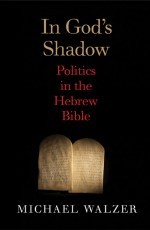
[The the second of three posts this week on Michael Walzer’s In God’s Shadow: Politics in the Hebrew Bible.] It is deeply satisfying to read a new book by Michael Walzer on the Hebrew bible. Certainly this is not Walzer’s first book on the Hebrew bible: Walzer’s earlier Exodus and Revolution already gives us a unique way to reimagine the revolutionary implications of the biblical text. With this new volume, Walzer’s writings on the bible continue to invigorate the way we can read this most ancient of texts. Michael Walzer’s In God’s Shadow sets a difficult task for itself. It reads the wide-ranging Hebrew bible to get a sense of how political institutions actually functioned in biblical times. This enterprise is more difficult than it sounds. Mining a work that consciously centers on historical and legalistic narrative for structural and procedural understandings about how political life actually works can be a counterintuitive project. It is a tribute to Walzer’s masterly sense of his craft and his nuanced readings of the biblical texts that he succeeds so well at his self-appointed task. Deliberately eschewing a philosophical or reductive (morally or otherwise) reading of the Hebrew bible, Walzer approaches these much-commented texts with another set of questions in mind: what role is left for politics in a world that, according to the bible at least, is governed by God?
With conservative and evangelical ethicists falling dramatically off the anti-gay-marriage bandwagon at a remarkable pace, superstar theologian David Bentley Hart’s essay “Is, Ought, and Nature’s Laws” last month in First Things came like a spark on a dry pile of tinder. Challenging the optimism of many contemporary Catholic thinkers (and recently many evangelical thinkers as well) that natural law arguments can provide a convincing, broadly-appealing basis for opposition to gay marriage legislation, Hart provoked a tide of responses and counter-responses in the blogosphere, which continues even now. For at stake in Hart’s remarks were not merely how conservatives should and shouldn’t engage in gay marriage debates, but the nature of the public square and of natural law itself, the foundation upon which so much Christian political theory has been built over the centuries.
Rather than attempting to weigh in with yet another contribution to the wide-ranging debate, I will merely seek to provide here something of an annotated catalogue of the more significant blasts and counter-blasts
In this column, I want to engage in what Reynolds Price once referred to as “a serious way of wondering” about Exodus 20: 15-18—i.e., the moment at which the Israelites experience the divine self-revelation at the foot of Mount Sinai. Normally, this passage is understood as a theophanic event. To the extent that it involves the constitution of a nation or polity, it has usually been understood as a theocracy. Its intellectual expression (insofar as it addresses the issue of covenantal authority grounded in divine self-revelation) would therefore take the form of a political theology. To the extent that we read the above passage in this way, we have already rendered a decision—the essential significance of the passage would lie in the divine self-revelation. The fear which the Israelites experienced would amount simply and solely to a fear of God. Conversely, an acceptance of the commandments would amount to an acceptance of the political theology undergirding the theocracy.
